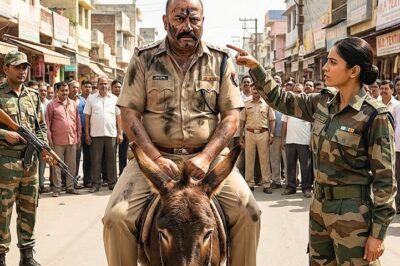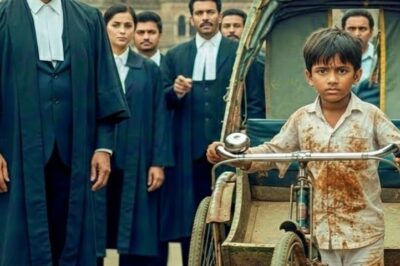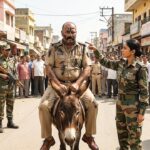The voice of the song ‘ Tere Mere Hothon Pe ‘ said goodbye to the world, wave of mourning in the music industry
.
.
.
The Voice of ‘Tere Mere Hothon Pe’ Says Goodbye: Mourning in the Music Industry as Babla Mehta Passes Away
Mumbai, July 24, 2025 — The Indian music industry is enveloped in a wave of grief and nostalgia as it bids farewell to one of its most soulful voices. Babla Mehta, the celebrated playback singer whose renditions brought alive some of Bollywood’s most memorable melodies, has passed away, leaving behind an irreplaceable void. Often hailed as “the voice of Mukesh” for his uncanny resemblance to the legendary singer Mukesh Chand Mathur, Babla Mehta’s demise marks the end of an era for millions of music lovers.
The Sudden Loss
The news broke early Thursday morning, sending shockwaves across the music and film fraternity. Babla Mehta, who had been keeping a low profile in recent years due to health concerns, succumbed to age-related complications at his Mumbai residence. Family sources confirmed that he passed peacefully, surrounded by loved ones. As condolences poured in from industry stalwarts and fans alike, it became clear that Babla Mehta’s legacy would endure far beyond his physical presence.

A Journey Rooted in Reverence
Babla Mehta’s musical journey is one steeped in admiration and respect for the legends who came before him—none more so than Mukesh Chand Mathur. Mukesh, whose tragic demise in 1976 left the music world in mourning, was known for his deeply emotive voice and timeless classics. For decades after Mukesh’s passing, fans lamented the loss of his unique timbre—until Babla Mehta emerged, almost as if destiny had chosen him to fill that void.
Born in Delhi, Babla was drawn to music from an early age. He idolized Mukesh, meticulously studying his style and voice. By the late 1980s, Babla had begun performing at local concerts, where audiences were awestruck by the striking similarity between his voice and that of the late Mukesh. Soon, he was affectionately dubbed “Mukesh ki Awaaz”—the voice of Mukesh.
The Big Break: ‘Tere Mere Hothon Pe’
Babla Mehta’s big break came in 1989 with the film “Chandni,” a romantic drama directed by Yash Chopra. The soundtrack, composed by Shiv-Hari, featured the duet “Tere Mere Hothon Pe,” sung by Lata Mangeshkar and Babla Mehta. The song, picturized on Rishi Kapoor and Sridevi, became an instant classic. For Babla, it was both a dream come true and a daunting challenge to sing alongside the Nightingale of India, Lata Mangeshkar.
In interviews, Babla often recounted the nervous excitement he felt during the recording. “To sing with Lataji was an honor I had never even dared to dream of,” he once said. The song’s success catapulted Babla into the limelight, earning him accolades and a permanent place in the hearts of music lovers. Even today, “Tere Mere Hothon Pe” remains a staple at weddings, parties, and radio playlists, a testament to its enduring appeal.
A Voice for the Classics
Over the years, Babla Mehta lent his voice to numerous Bollywood films, including “Dil Hai Ke Manta Nahin,” “Chandni,” “Saajan,” “Sadak,” “Taal,” “Tahlaaka,” and “Major Saab.” His ability to evoke nostalgia made him a favorite for songs that required a touch of old-world charm. Yet, it was his non-film work—particularly his renditions of Mukesh’s songs—that truly set him apart.
Babla released several albums under the T-Series banner, each dedicated to the memory of Mukesh. These albums, featuring classics like “Kabhi Kabhi Mere Dil Mein,” “Jeena Yahan Marna Yahan,” and “Dost Dost Na Raha,” were meticulously crafted to capture the essence of the original while adding Babla’s own emotional depth. His live concerts, often billed as “A Tribute to Mukesh,” drew packed audiences both in India and abroad.

Carrying the Torch of Mukesh
For many, Babla Mehta was more than just a singer—he was a living bridge to a golden era of Hindi music. His resemblance to Mukesh’s voice was not mere imitation; it was a heartfelt homage. Babla himself acknowledged this, saying, “I have always considered myself a disciple of Mukeshji. My greatest joy is when listeners say they felt Mukeshji’s presence through my singing.”
This devotion did not go unnoticed. Music directors and producers frequently sought Babla for projects that required the warmth and sincerity of Mukesh’s style. Over his career, Babla recorded over 250 songs, both in films and independently, and became a staple at music festivals and cultural events celebrating the legacy of Hindi cinema.
The Human Side of a Legend
Beyond his professional achievements, Babla Mehta was known for his humility and generosity. Colleagues recall a man who was always willing to mentor younger artists, often encouraging them to find their own voice while respecting the masters. He was a regular at charity concerts, using his talent to raise funds for causes ranging from child education to healthcare for underprivileged musicians.
Despite his fame, Babla remained grounded. He often credited his family—especially his wife and children—for keeping him anchored. “Whatever I am today, it is because of their support and love,” he would say. In an industry known for its fleeting loyalties, Babla’s relationships were marked by sincerity and mutual respect.
Mourning in the Music Industry
As news of Babla Mehta’s passing spread, tributes poured in from every corner of the music world. Lata Mangeshkar, who sang several duets with Babla, expressed her sorrow in a heartfelt message: “Babla was a wonderful artist and a kind soul. His voice brought Mukeshji back to us, if only for a while. He will be deeply missed.”
Music director Anu Malik recalled their collaborations: “Babla’s dedication to his craft was unparalleled. He never tried to overshadow Mukeshji’s legacy—instead, he honored it. That’s what made him special.” Singer Sonu Nigam tweeted, “Rest in peace, Babla Mehta. You kept the golden voice of Mukesh alive for new generations.”
Fans, too, shared their grief on social media, posting clips of Babla’s performances and recounting personal memories of his concerts. Hashtags like #RIPBablaMehta and #VoiceOfMukesh trended throughout the day, a digital testament to the singer’s widespread impact.
The End of an Era
Babla Mehta’s passing is particularly poignant for those who remember the void left by Mukesh’s death in 1976. For decades, fans mourned the loss of Mukesh’s voice, believing it to be irreplaceable. Babla’s arrival offered solace—a chance to relive cherished memories and introduce classic songs to new audiences. Now, with Babla’s departure, it feels as though the last echoes of that golden voice have faded forever.
Yet, Babla’s legacy endures. His recordings continue to enchant listeners, while aspiring singers look to his career as proof that reverence for the past can coexist with artistic individuality. As one music critic wrote, “Babla Mehta did not merely mimic Mukesh; he embodied the spirit of a bygone era, reminding us why these songs matter.”
Remembering the Man and His Music
In the coming days, memorial services and tribute concerts are expected to be held across India. The T-Series label has announced plans to re-release Babla’s most popular albums, while several radio stations are dedicating special programs to his memory. For many, these gestures are small comforts in the face of such a profound loss.
As the sun sets on another chapter of Hindi music history, fans and colleagues alike find solace in Babla Mehta’s own words: “Music is eternal. Voices may fade, but the emotions they evoke live on.” In living rooms, cars, and concert halls across the world, Babla’s songs will continue to play—each note a reminder of a voice that once brought Mukesh back to life, and now, has joined him in the annals of musical immortality.
play video:
News
तलाकशुदा IPS पत्नी लिए पति ने दांव पर लगा दी अपनी जान, पूरी कहानी जानकर हर कोई रो पड़ा…
तलाकशुदा IPS पत्नी लिए पति ने दांव पर लगा दी अपनी जान, पूरी कहानी जानकर हर कोई रो पड़ा… ….
“50 लाख लेकर तलाक… फिर सड़क पर भीख! पति से मुलाकात ने बदल दी जिंदगी”😱
“50 लाख लेकर तलाक… फिर सड़क पर भीख! पति से मुलाकात ने बदल दी जिंदगी”😱 . . . “50 लाख…
जब एक आर्मी अफसर के साथ बदसلوकी हुई | आर्मी की एंट्री ने सब कुछ बदल दिया | New Hindi Moral Story
जब एक आर्मी अफसर के साथ बदसلوकी हुई | आर्मी की एंट्री ने सब कुछ बदल दिया | New Hindi…
11 साल का रिक्शावाला बच्चा जिसे पुलिस ने पीटा—पिता निकले हाईकोर्ट जज 😱 फिर जो हुआ 😱
11 साल का रिक्शावाला बच्चा जिसे पुलिस ने पीटा—पिता निकले हाईकोर्ट जज 😱 फिर जो हुआ 😱 . . ….
जिसे सब भिखारी समझ रहे थे… उसी कूड़ा बिनने वाले ने ठीक करदिया 500 करोड़ का रोबोट…?
जिसे सब भिखारी समझ रहे थे… उसी कूड़ा बिनने वाले ने ठीक करदिया 500 करोड़ का रोबोट…? . . ….
Gelin yılbaşında çocuklarıyla geldi. Eve kimse dönmedi…
Gelin yılbaşında çocuklarıyla geldi. Eve kimse dönmedi… . . . Gelin Yılbaşında Çocuklarıyla Geldi. Eve Kimse Dönmedi… Bölüm 1: Stanitsa’ya…
End of content
No more pages to load












